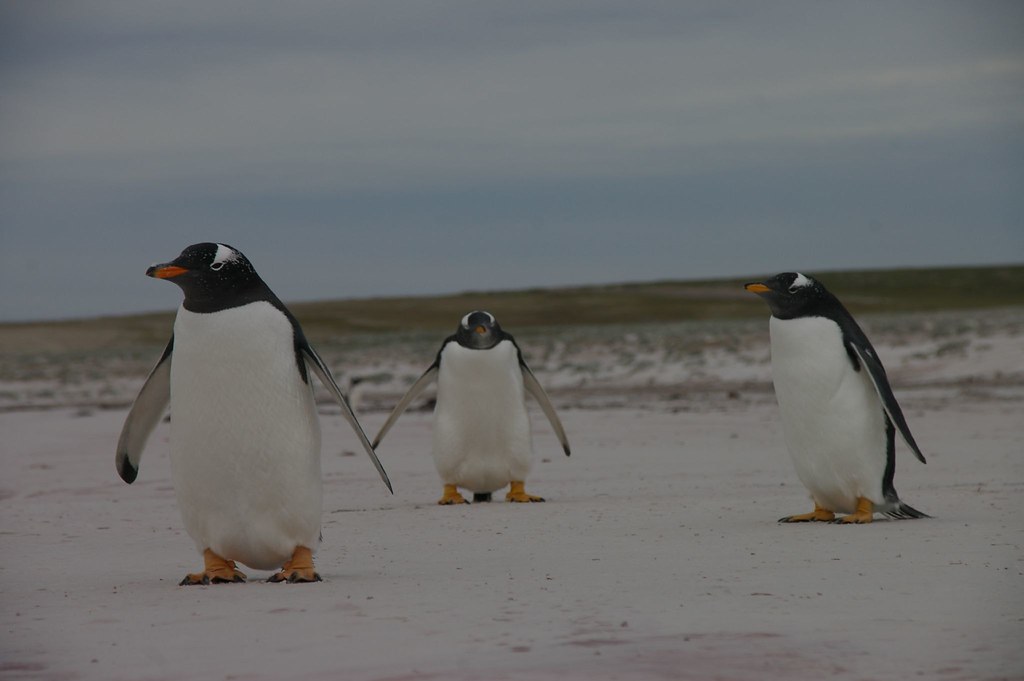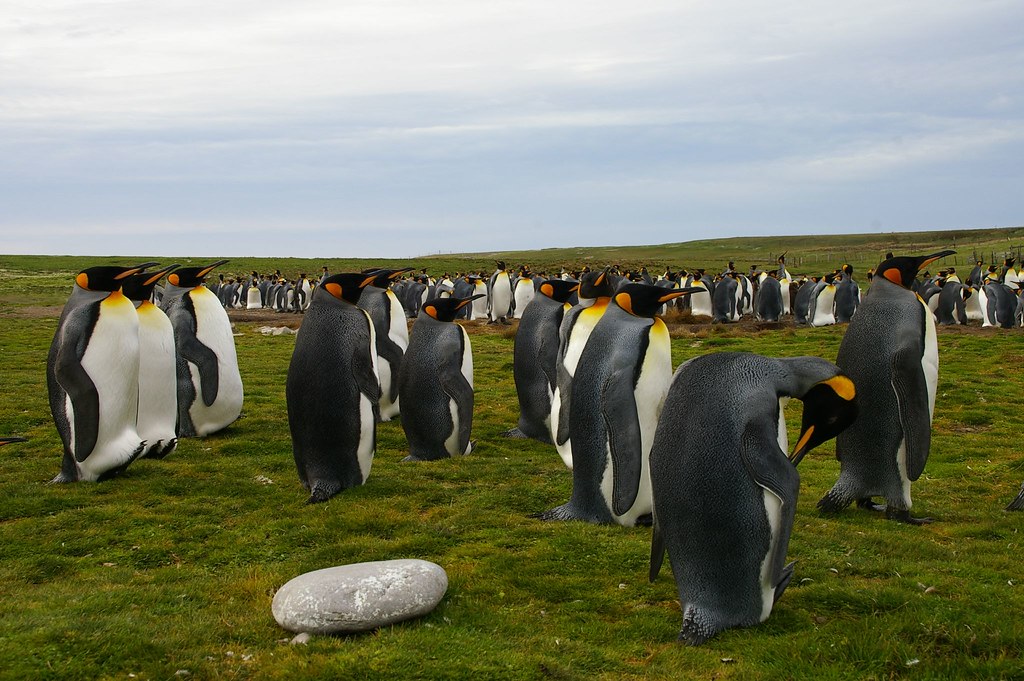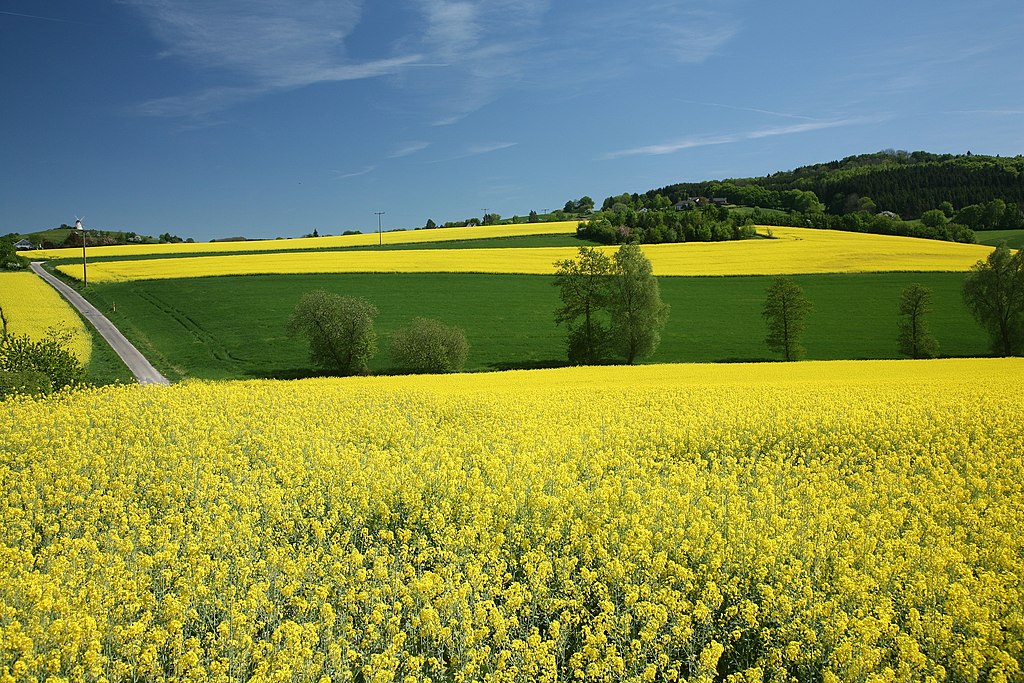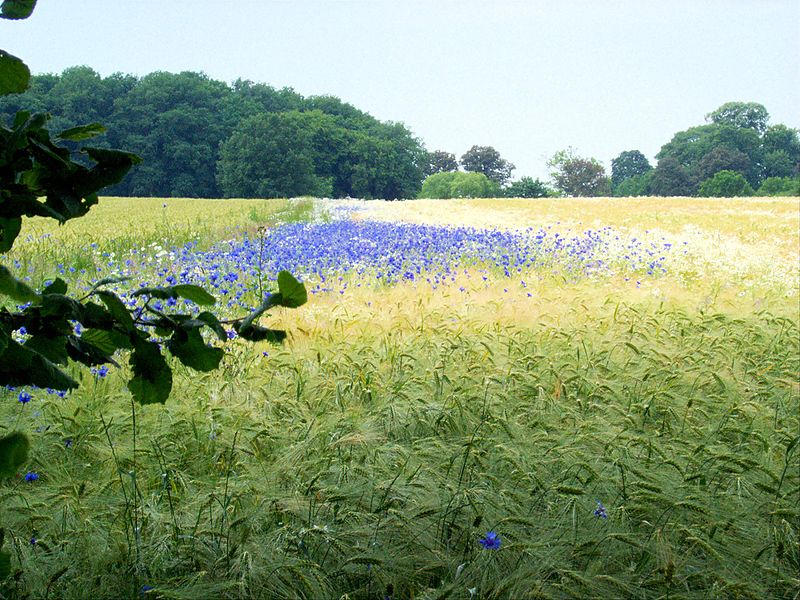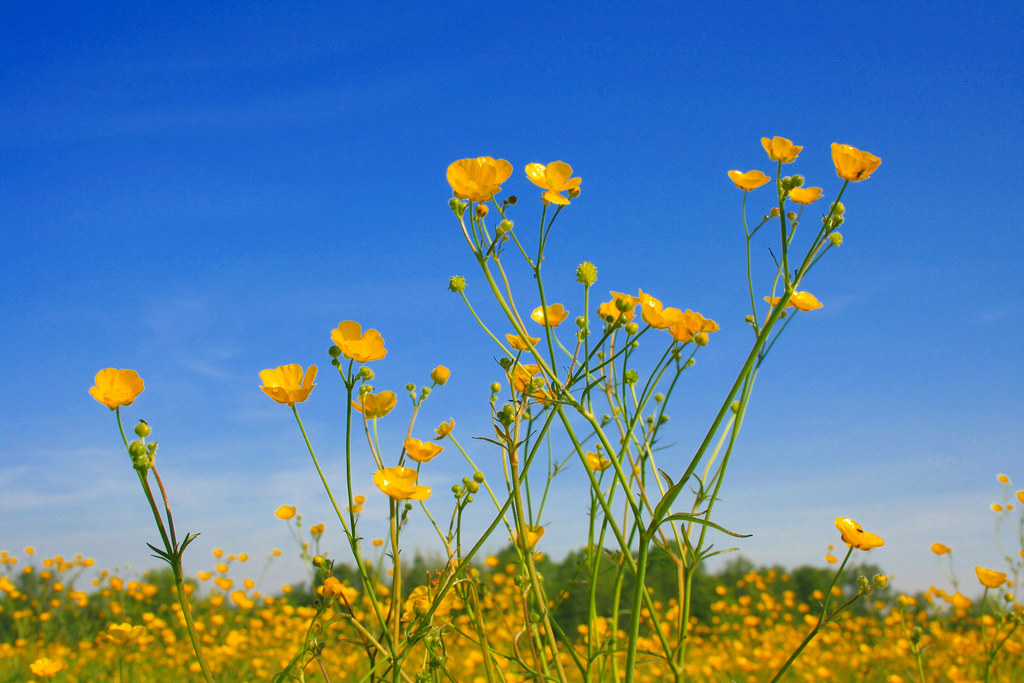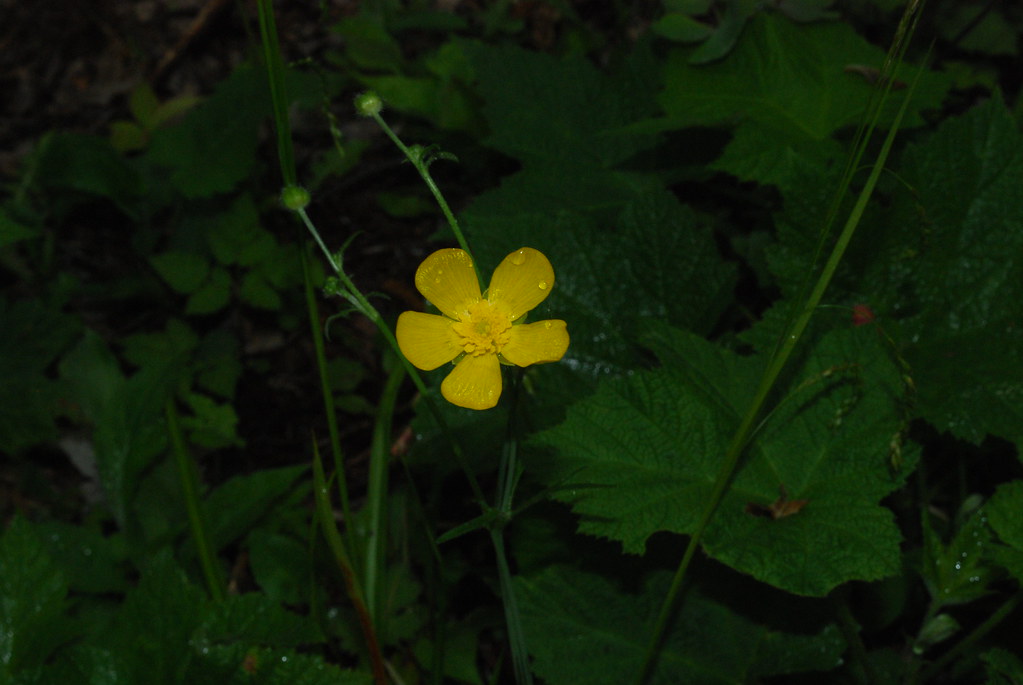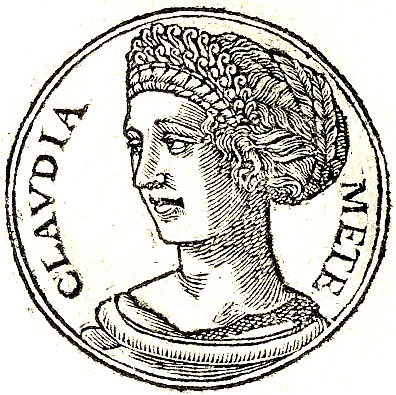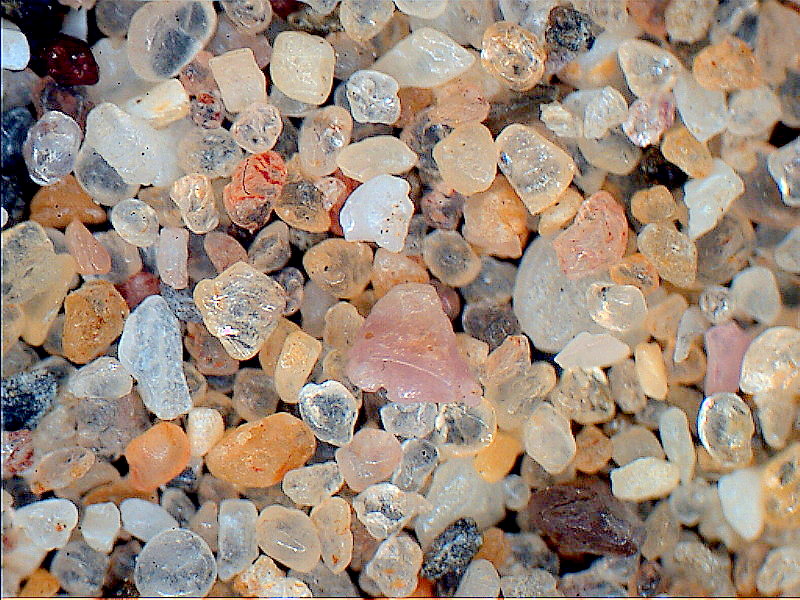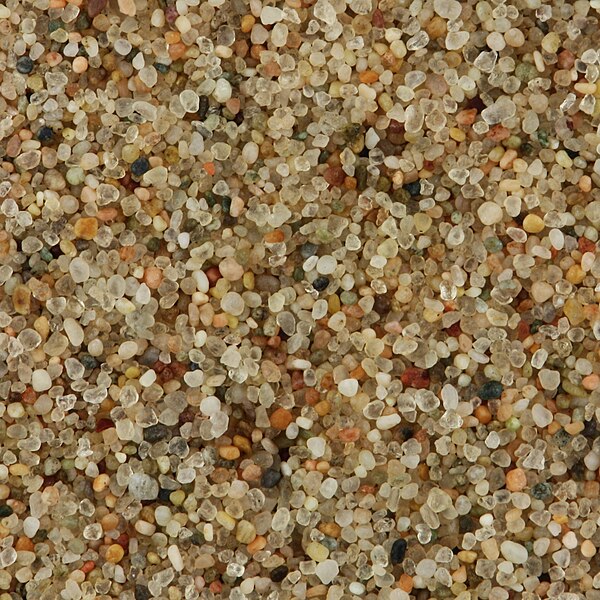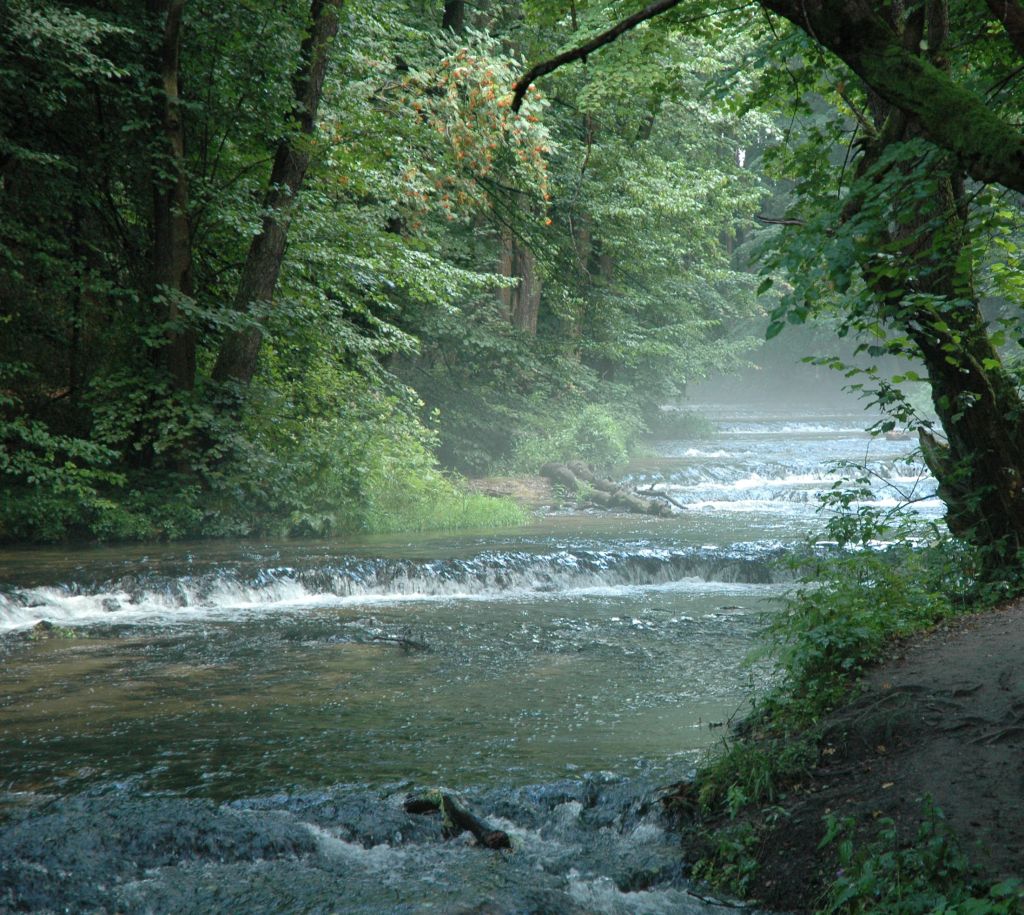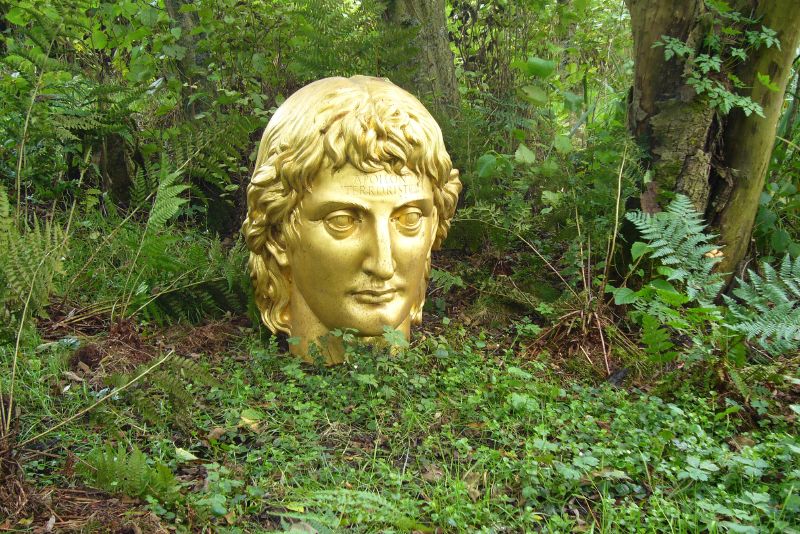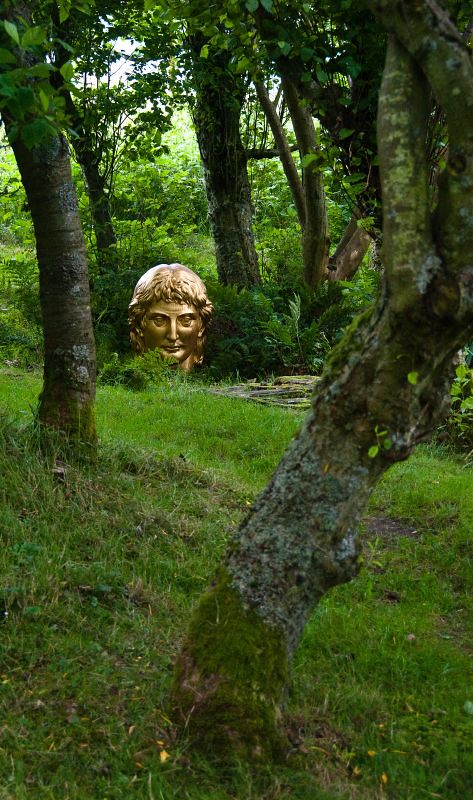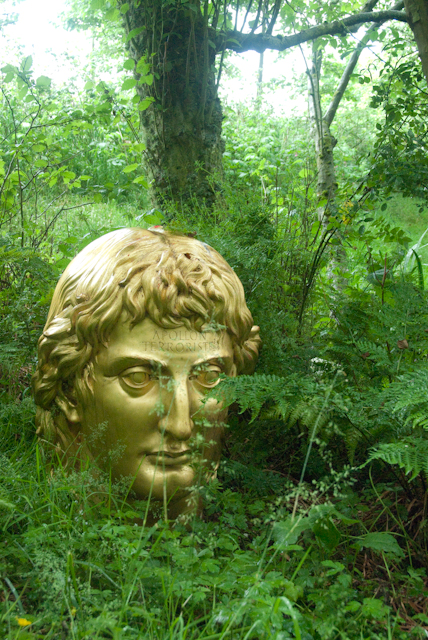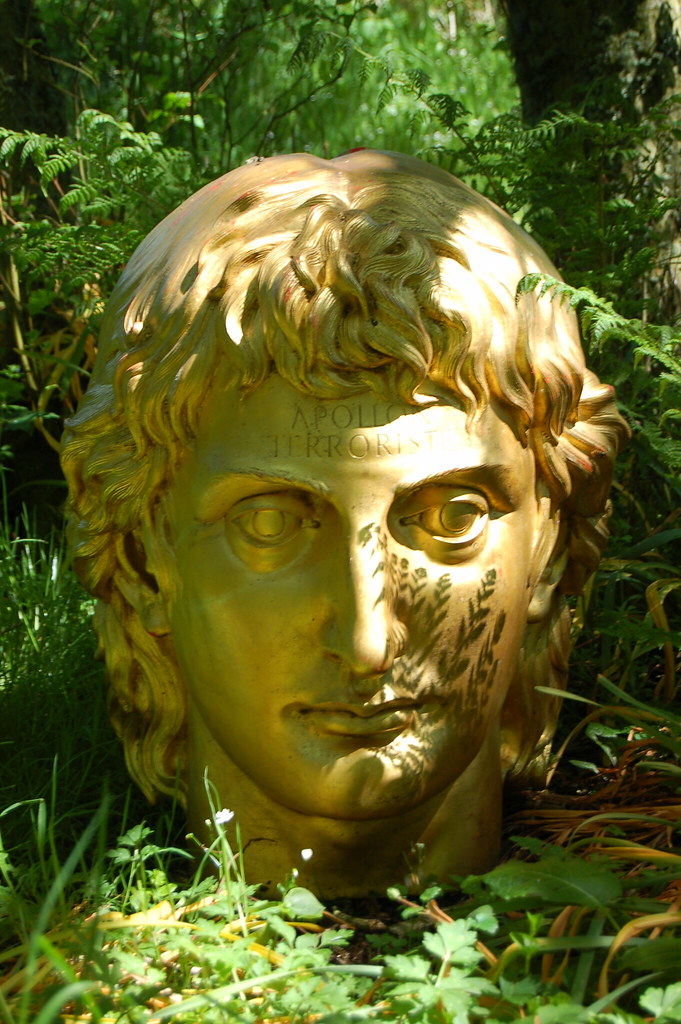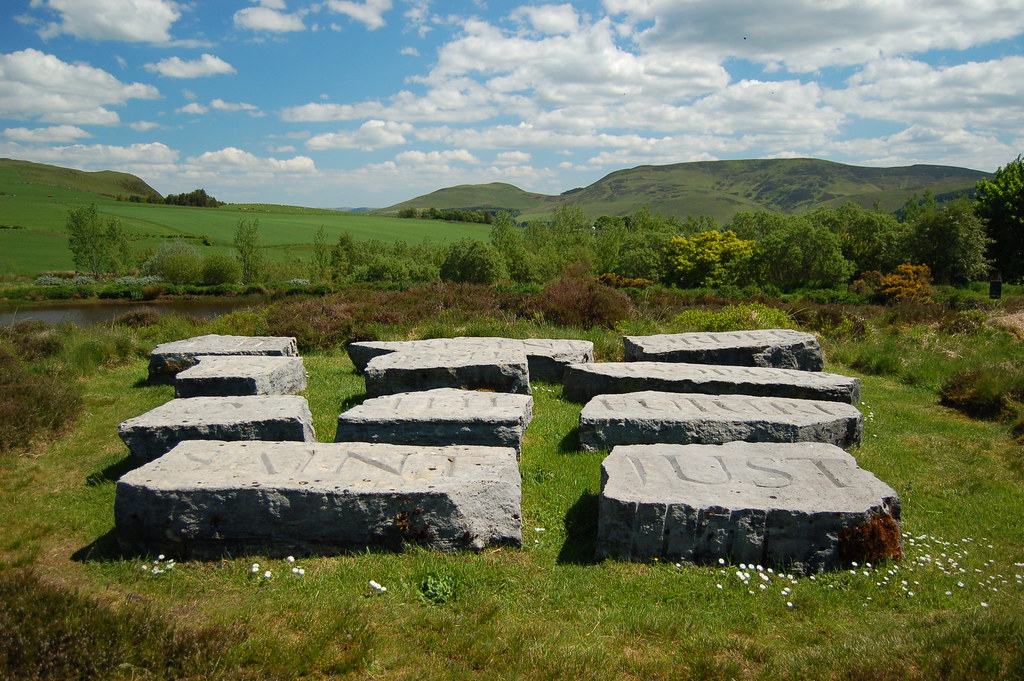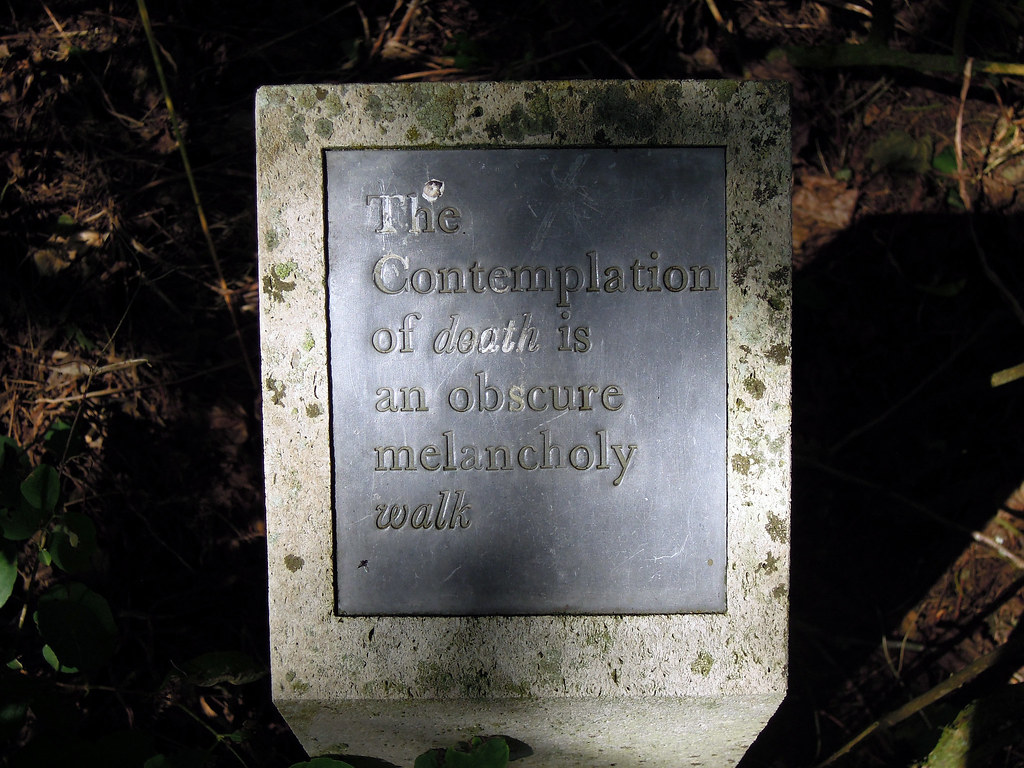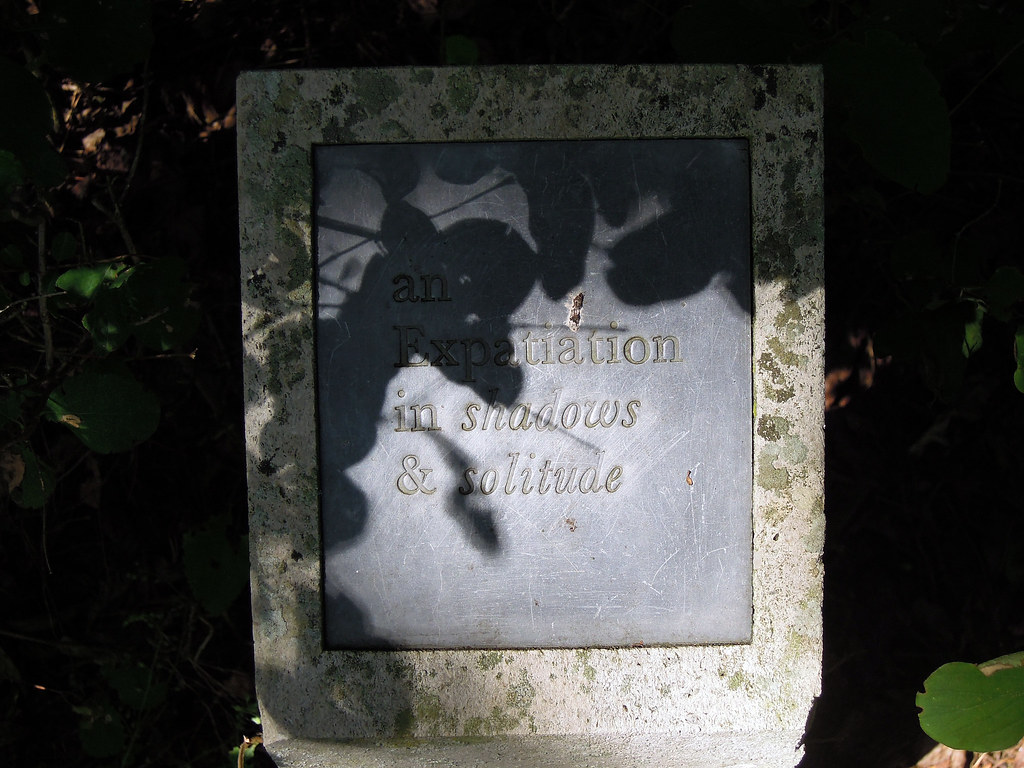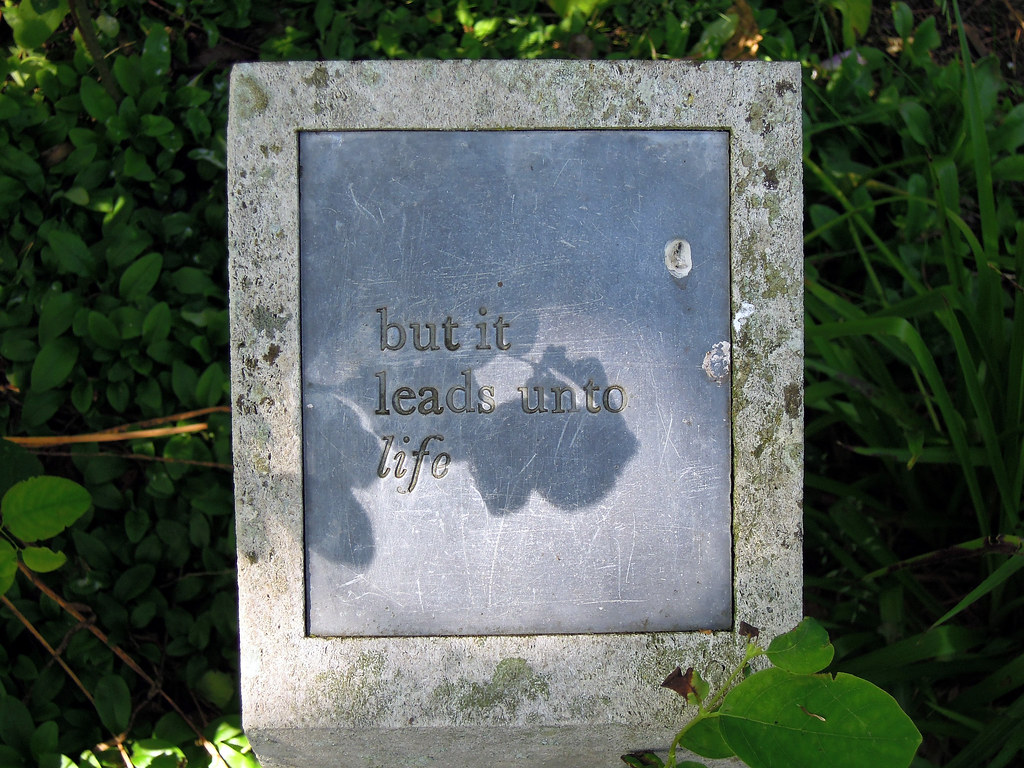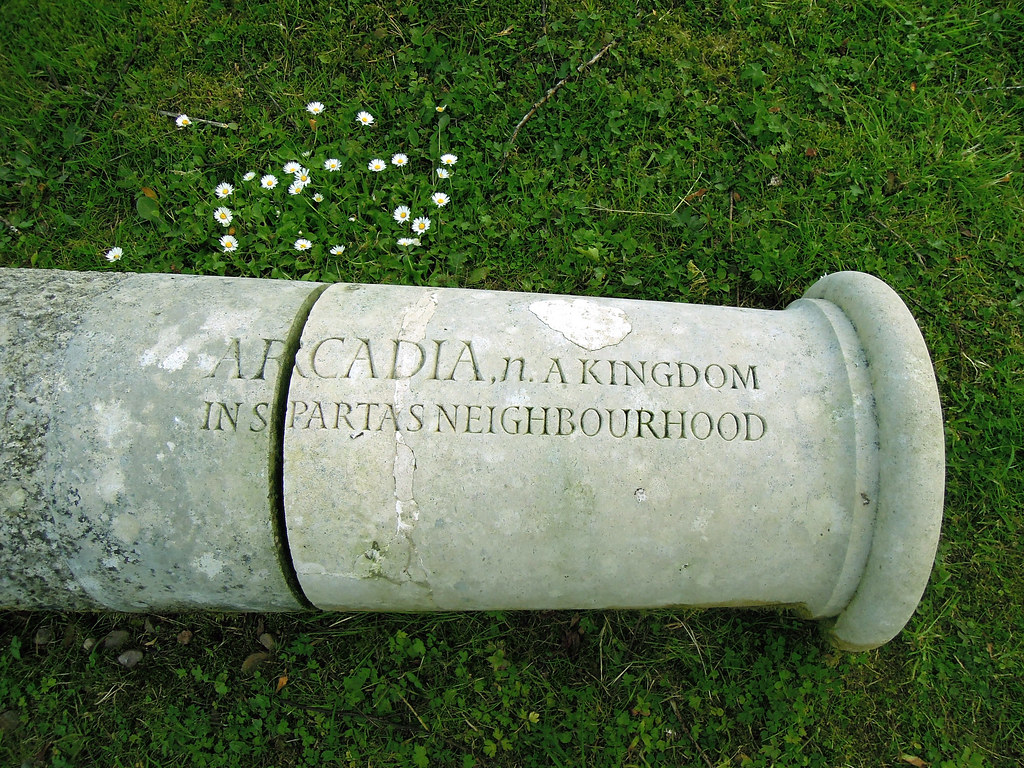.
"Even Sarah De Angelo looked like a penguin in black slacks": King Penguins (Aptenoydes patagonicus patagonicus), Stanley, East Falkland Island: photo by Ben Tubby, 18 March 2007
I’ve heard people argue that there’s an awful kind of poem
called an MFA poem, and usually these people
who hate MFA poems have never earned an MFA,
so the MFA poets argue vehemently in defense
of their craft and their MFAs, and I, an MFA poet
try to agree and say, I’m on the MFA’s team.
We’re right and they’re wrong. Nah-nah-nah-nah-nah.
But the truth is, well,
there is a certain kind of poem I was taught to write
when I was earning what my husband calls my mail-order degree
from a low-res program in the Northeast. And I guess
I would call this kind of poem an MFA poem,
though the truth is, I never learned to write one very well
(though this is one of them, or is trying to be),
but I do see them everywhere now, these MFA poems,
which I despise, not because the poems are bad
but because I was taught how to write them
by this asshole professor (he was such a creep)
who was abusive to women, mostly,
fucked with their heads if not their bodies,
you know the type. Back then
the women took whatever he dished out
because he was famous I guess.
I hated that, and how he would write poems
about being an asshole, which he was and is,
and about everything and anything else
because, he would explain, everything is happening at once,
so everything is happening in his poems, and happening so fast,
that the past, present, and future are all there in the poems
though nothing is ever really happening
because the poems are usually in some static place
like an airplane seat, where he is safely buckled in,
or a dream, or a therapist's office or a hospital room . . .
He was so often in hospital rooms
because he had just had an appendectomy
or a case of gout or a kidney stone
or gangrene or hemorrhoids or who knows what else,
hypochondria maybe, and usually there was a TV on
(this is America, after all, and everything
is always happening on TV, he said),
and so the I of the poem is always watching
scenes of violence and destruction from far away
while obsessing about himself
and thinking of what the I really wants
which is usually pretty predictable:
a shower, a cup of Starbucks,
a few martinis, a really good fuck.
Yes, he smirked, a good fuck is always nice,
and it’s nice to fuck or use the word, fuck,
in a poem as often as possible
while on TV people are drowning in the mud
at the Grande Island at Angra dos Reis
or being tortured, bombed, or raped in South Waziristan
or maybe in the Democratic Republic of the Congo,
or they are being massacred in Conakry, Guinea
or dumped into mass graves in the southern Mexican state of Guerrero . . .
and somehow the poet usually picks which crisis
to write about, depending on the sound of the name
of the place. The poet likes the name of the city of Sarajevo,
for example, because it sounds like music on his tongue
and reminds him of his first love, Sarah De Angelo.
Yes, Sarah De Angelo. He says her name aloud
as he wonders whatever happened to the lovely Sarah De Angelo
whose name still feels like an ache in his gut,
whose name still fills him with longing and angst,
even now so many years later, even in this hospital room
with horrible scenes of death and disaster playing over and over again,
he thinks only of Sarah De Angelo, and he remembers
the first time he saw her. He was eleven years old
and new at Saint Charles School in Toledo, Ohio,
and she was wearing a pink frock, pink socks,
and pink ribbons in her yellow hair. Yes, frock,
he thinks, now that's a word no one uses much
anymore. Maybe the poem should include
a few more words like that, like slacks perhaps.
Slacks aren’t nearly as nice as a good frock, of course.
But maybe the poet remembers when the girls
were first allowed to wear slacks to school . . .
and there was that distinction, carefully explained
in the dress code manual, between pants and slacks,
between trousers and slacks,
and as far as he was concerned, slacks
were a big mistake. No one should ever be allowed
to wear slacks, those polyester twills
that made the girls look shapeless and manly . . .
Even Sarah De Angelo looked like a penguin in black slacks.
And at some point (who knows when, but it was never soon enough)
the poet realizes that his poem is getting a bit too long,
and he also notices that the nurse on night duty is wearing slacks
beneath her white gown, and he can't help thinking
of Sarah in a silk white blouse with ruffles and black slacks,
and how he wouldn’t mind if the nurse would linger
a while longer and maybe ask him how he feels for once,
and pretend she gives a fuck about him,
and he then begins to wonder what it would be like
to release the nurse from those double knits.
Maybe he could do her a favor or two,
make her smile, laugh, sigh . . .
but when she rolls her little tray up to his bedside
and hands him a pink pill and a plastic cup, she just says, Take this,
and he does. Yes, he takes whatever she gives.
Nin Andrews: Learning to Write the MFA Poem, from The Secret Life of Mannequins, Kattywompus Press, 2011

King Penguins (Aptenoydes patagonicus patagonicus), Stanley, East Falkland Island: photo by Ben Tubby, 18 March 2007
King Penguins (Aptenoydes patagonicus patagonicus), Stanley, East Falkland Island: photo by Ben Tubby, 18 March 2007
King Penguins (Aptenoydes patagonicus patagonicus), Stanley, East Falkland Island: photo by Ben Tubby, 18 March 2007
 King Penguins (Aptenoydes patagonicus patagonicus), Stanley, East Falkland Island: photo by Ben Tubby, 18 March 2007
King Penguins (Aptenoydes patagonicus patagonicus), Stanley, East Falkland Island: photo by Ben Tubby, 18 March 2007
King Penguins (Aptenoydes patagonicus patagonicus), Stanley, East Falkland Island: photo by Ben Tubby, 18 March 2007
King Penguins (Aptenoydes patagonicus patagonicus), Stanley, East Falkland Island: photo by Ben Tubby, 18 March 2007
King Penguins (Aptenoydes patagonicus patagonicus), Stanley, East Falkland Island: photo by Ben Tubby, 18 March 2007









